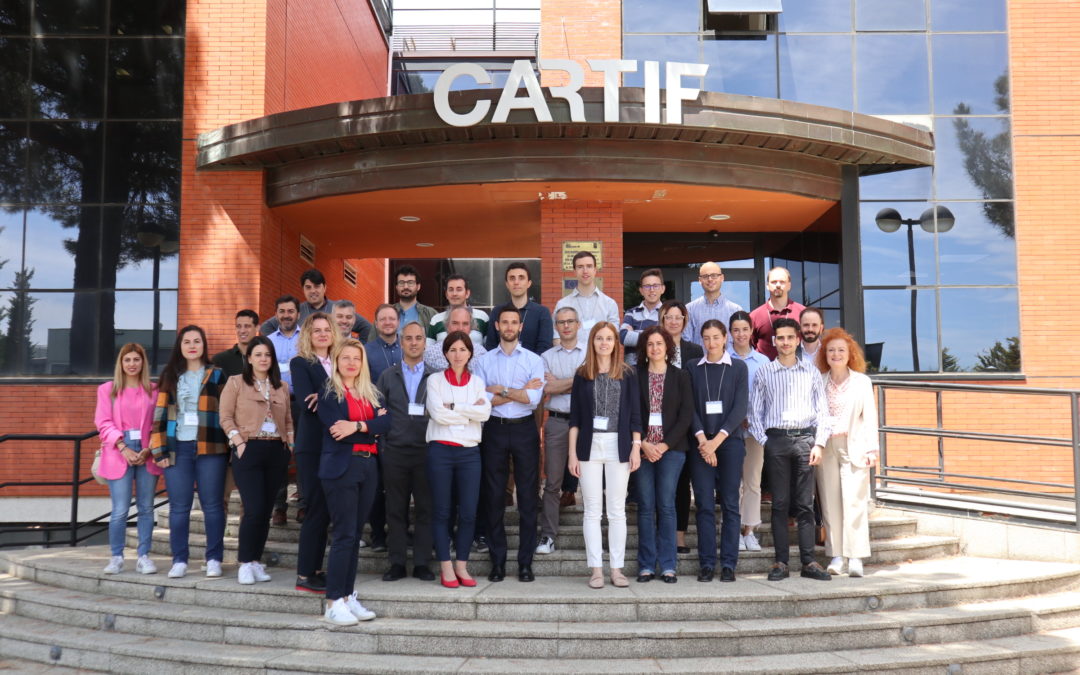The BuildON project, whose main objective is to achieve smarter buildings to improve their energy performance, has held its kick-off meeting this week at CARTIF. During these days, the consortium from nine European countries has met at the centre’s own facilities, located in the Boecillo Technology Park, to determine the first steps of the project.
The project, funded under the Horizon Europe programme, will have five demonstrators located in Valladolid (Spain), Helsinki (Finland), Gdynia (Poland), Moret Loing et Orvanne (France) and Athens/Thessaloniki (Greece). It studies to cover residential and tertiary environments in different climate zones, using multiple energy systems under various configurations, as well as different types of end-users.
In order to help build the ‘next generation of EU smart buildings’, BuildON aims to develop a generic and highly replicable solution to provide optimal control functionalities in smart buildings. Digitalisation, together with the level of smart building readiness in its different domains (in line with the SRI – Smart Readiness indicator framework), provides the basis for action to deliver affordable, adaptable, easy-to-install and close-to-market solutions. The project aims to go towards in the energy transition and integrated energy system based on renewable energies, in which the user plays a key role.
Estas herramientas de transformación, facilitarán la integración de sistemas y tecnologías heterogéneas, y ofrecerán funcionalidades para supervisar (Monitor), evaluar (Assess), predecir (Predict) y optimizar (Optimise) de forma continua el rendimiento del edificio (servicios MAPO). Además, se ofrecerán interfaces simplificadas para ocupantes y gestores de edificios, que podrán interactuar con los edificios para simular su comportamiento y controlar sus sistemas.
The project is composed of 20 partners from nine EU countries who will work collaboratively during the 42-month project period to improve the capabilities of EU buildings by making them more efficient, flexible and resilient.
